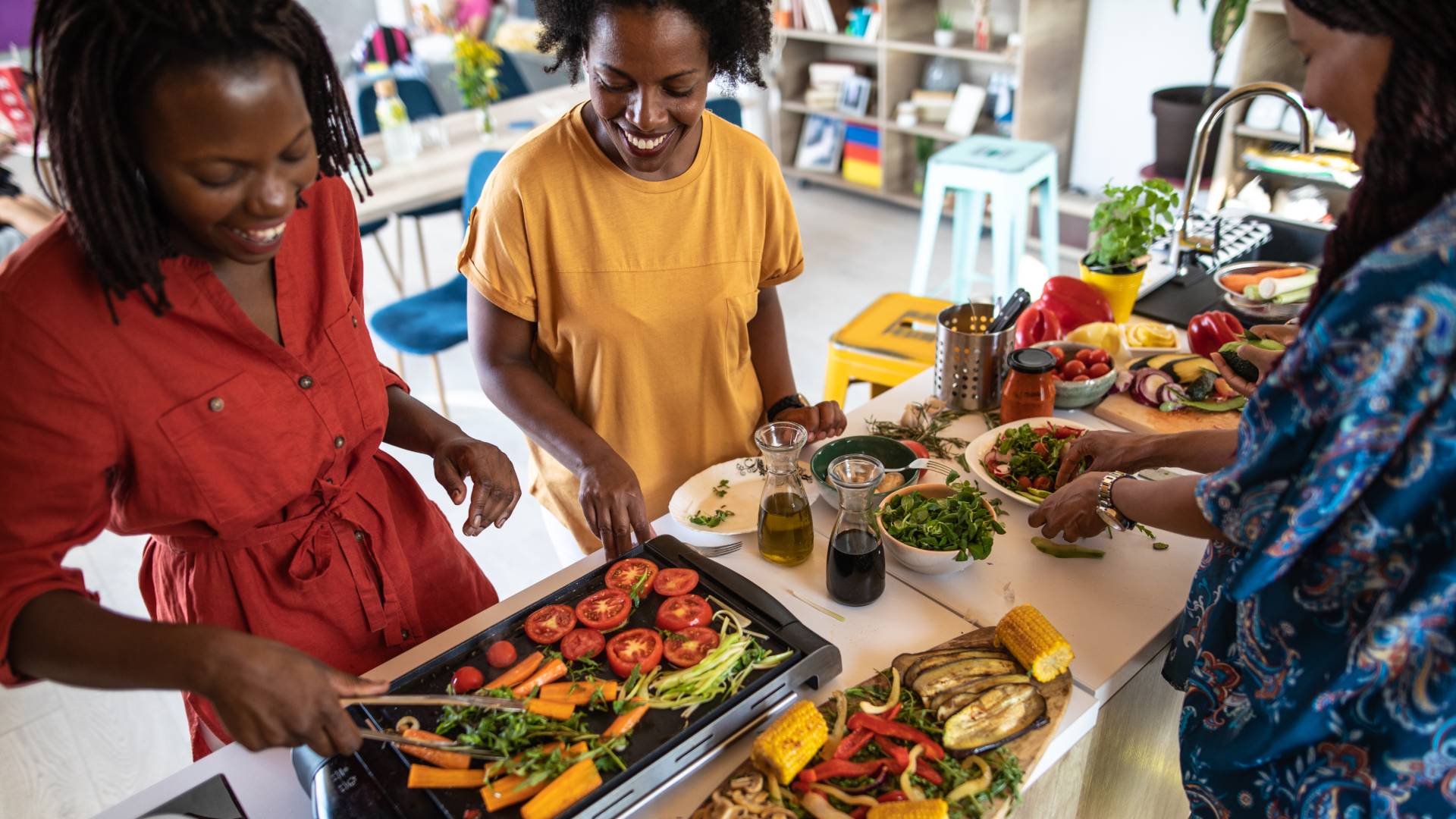How to Stay Fit and Eat Healthy on a Budget in Africa

Staying fit and eating healthy is a universal goal, but when you're in Africa — where economic challenges, food inflation, and time constraints are everyday realities — it might seem like an expensive or unrealistic dream. But here's the good news: you can live a healthy lifestyle without breaking the bank.
Whether you're a student, a young professional, or a family breadwinner, this guide will show you exactly how to stay fit and eat healthy on a budget in Africa, using local, affordable options and practical strategies tailored to the continent's unique context.
Embracing the African Advantage: Local Is Cheaper and Healthier
Contrary to popular belief, you don’t need imported kale, quinoa, or fancy protein powders to eat well. Africa is blessed with an abundance of nutritious local foods that are both affordable and healthy.
Examples of nutrient-rich local foods:
Ugu (Fluted Pumpkin) – rich in iron and vitamins
Ofada rice – unpolished and full of fiber
Millet, sorghum, and fonio – great alternatives to refined grains
Beans and lentils – high in protein and very filling
Plantains and sweet potatoes – healthier carb options
These local foods are often cheaper in open markets and are seasonal, meaning they are fresher and more nutritious.
Smart Budgeting for Healthy Eating
Budgeting for food doesn’t mean eating less — it means spending smartly. Here’s how:
1. Plan Your Meals Weekly
Before you shop, write down what you’ll eat for the week. Focus on meals that can be prepared in bulk, like vegetable soups, rice and beans, or yam porridge. This reduces food waste and saves money.
2. Buy in Bulk
Items like rice, beans, garri, and grains are cheaper when bought in bulk. Visit wholesale markets or buy from local cooperatives.
3. Cook at Home
Eating out frequently is a major budget killer. Home-cooked meals are healthier, cleaner, and cheaper. Invest in basic kitchen tools and try batch cooking on weekends.
4. Seasonal and Market Days
Buy fruits and vegetables that are in season. Prices drop significantly during harvest periods. Also, shop during market days when prices are most competitive.
Affordable Fitness: You Don’t Need a Gym
A healthy lifestyle isn’t just about food — it’s also about staying physically active. Luckily, staying fit doesn’t require a gym membership or expensive equipment.
Practical Fitness Ideas You Can Start Today:
Walk or bike instead of taking short cab rides
Use household items for strength training (buckets of water, bags of rice, etc.)
YouTube and Instagram have hundreds of free, no-equipment home workouts tailored to all fitness levels
Join community sports or dance groups — affordable and fun!
Bodyweight workouts like squats, push-ups, and planks can be done anywhere, anytime
Consistency is key. You don’t need to do 90 minutes every day. Even 20-30 minutes of daily activity can transform your health over time.
Mindset Shift: Wellness Is an Investment
Your body is your most valuable asset. Think of healthy living as a long-term investment, not a luxury. Poor health can be far more expensive in the long run — in terms of medical bills, lost productivity, and missed opportunities.
Many Africans spend more on processed snacks, soft drinks, and alcohol than they realize. Redirecting even a portion of that money toward fruits, veggies, and lean protein can make a huge difference.
Real-Life Example: Eating Healthy for ₦1000 a Day (Approx $1–$2)
Let’s break down a budget-friendly meal plan using Nigerian local ingredients:
Breakfast:
Pap (ogi) + moi-moi or boiled egg + banana
Cost: ₦250
Lunch:
Brown rice + beans + tomato stew + green vegetables
Cost: ₦400
Dinner:
Sweet potato porridge with ugwu
Cost: ₦350
Not only is this affordable, but it also provides protein, fiber, carbs, vitamins, and minerals.
Bonus Tips for Long-Term Success
Drink more water: It's free, healthy, and helps control appetite.
Cut down on processed snacks: Swap cookies for groundnuts or fruits.
Limit sugar and salt: Small changes here make a big difference over time.
Get enough sleep: Often overlooked, but essential for recovery and stress management.
Track your progress: Keep a journal or use apps to monitor your eating habits and workouts.
Conclusion
You don’t need to be rich to live well. With the right knowledge and commitment, staying fit and eating healthy on a budget in Africa is 100% achievable. Use your local resources, plan smart, and stay active. Your body — and your wallet — will thank you.




.png)